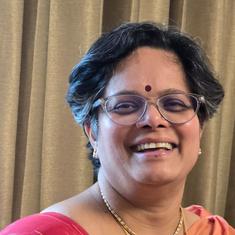For the last 15 years, these abuses have been known only to a small group of people, even as Peru has taken pains to face up to the violence of its recent history.
The Peruvian state spent the 1990s waging a merciless war against guerrilla groups that sought to destroy it – among them the radical Marxist group Shining Path – and hundreds of thousands of civilians were caught in the crossfire or deliberately targeted.
Much like Islamic State today, Shining Path had a penchant for staging attention-seeking massacres and murders to provoke maximum public revulsion. The eventual capture of their leader Abimael Guzmán drew scores of sensational headlines and even a film starring Javier Bardem and directed by John Malkovich.
After Fujimori resigned from office in 2000 amid devastating revelations of corruption, abuse of power and disregard for human rights, the state engaged in a dogged attempt to find out the truth about atrocities on all sides, with a National Truth and Reconciliation Commission reporting in 2003. Alongside the testimonies of murder, torture and rape which filled its pages, the programme of sterilisations did not attract much attention.
But thanks to the tireless work of many women who have come together in support groups across the Peruvian Andes, and historians, sociologists and campaigning lawyers, we now have a better idea of who was affected.
Turning the tide
The vast majority were indigenous women, often illiterate in Spanish. They were often poor and living in isolated villages with limited infrastructure and services. The violent conflict of the early 1990s had claimed the lives of many of their loved ones, and had instilled in them a deep fear and ambivalence towards incomers.
And of course, the Anglosphere media is also notorious for only focusing on news coming out of Latin America when it conforms to certain stock tropes – revolution, natural disaster, corruption, exoticism or sport. More disturbingly, however, this history remains only sketchily known in Peru itself.
Indigenous women in isolated communities have long been marginalised by their ethnicity, their gender and their location – and that marginalisation arguably helped facilitate and even legitimise the way they were treated by the sterilisation programme.
For 15 years, the word of the people who were sterilised has been stacked against the word of the people who ordered the sterilisation campaign, and the victims have had to struggle to make their voices heard. But the tide is beginning to turn.
Campaigning NGOs have realised that this is a clear example of the abuse of human rights, although no celebrities have yet spoken out in favour of the women’s persistent campaign for justice over the last decade. Amnesty International’s Peruvian Section has recently started to campaign on the issue. As Giulia Tamayo, a Peruvian activist who was one of the first to raise the profile of the sterilisations, wrote: “They didn’t expect illiterate, indigenous women would speak up. They were wrong.”
This is a story that can have a happy ending – or at least a resolution of some sort.
Listen up
Thanks to the hard work of creative technologists at Chaka Studio, and a long-standing collaboration with Peru’s underfunded activist groups, you can listen to the testimonies today. They have designed a way for people in isolated communities in the Andes, who cannot access the internet, to phone their stories in through a free telephone number. They are then made available to listen to online.
The Quipu Project is now live, meaning that you can now listen directly to the voices of the people who were affected by the sterilisation programme, and whose stories have been ignored until now. After spending ten minutes or so listening to the voices of the people who were affected by the sterilisation programme, you can then send a message back to them, to be played back on the same phone line.
The more people listen to the testimonies, the more the candidates in Peru’s 2016 presidential election will have to take their demands for justice and reparation seriously.
One of the candidates is Keiko Fujimori, the daughter of still-imprisoned ex-president Alberto Fujimori. Like outgoing President Ollanta Humala, who recently signed a presidential decree ordering the creation of a national Register of Victims, which would finally establish how many people were abused by the state,
she has expressed her desire to know the truth about what happened.
Until now, efforts to achieve justice and reparations have foundered against public indifference, in Peru and worldwide. But now, thanks to the Quipu Project, you can not just find out what happened – you can hear it from those involved.
Matthew Brown, Reader in Latin American Studies, University of Bristol and Karen Tucker, Lecturer in Politics, University of Bristol.
This article was originally published on The Conversation.










